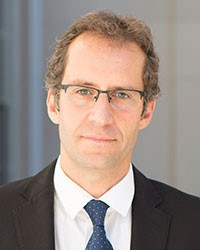应动力工程多相流国家重点实验室郭烈锦教授邀请,美国麻省理工学院MIT Prof. Jacopo Buongiorno和Prof. Matteo Bucci将于9月5日(星期二)下午16:00-17:00,在能动学院北二楼11楼会议室举办学术讲座,请实验室师生积极参加学习交流。
讲座题目:“New challenges and perspectives in nuclear reactor heat transfer”。
报告摘要:
The power rating of Light Water Reactors (LWR), and consequently the cost of nuclear electricity, is significantly limited by Critical Heat Flux (CHF) and quenching heat transfer phenomena.
Specifically, the maximum allowable heat flux in a nuclear reactor is established in order to avoid CHF on the fuel cladding surface during both normal and off-normal operating conditions: if CHF occurs, a vapor blanket would cover the fuel cladding and its surface temperature would increase rapidly, potentially leading to burnout and fission product release. Large conservativism margins are also taken in order to account for the lack of understanding of these phenomena and the uncertainties associated with correlations obtained from ad-hoc experiments. Eventually, the maximum allowable heat flux is much smaller than the expected CHF.
To overcome this limitations, two strategies are possible: to improve the understanding of fundamental phenomena in order to enhance the modelling capabilities of computational codes used in the design and the safety analyses of nuclear reactor; and to increase CHF limits by means of micro and nano-engineered fuel claddings.
报告人介绍:

Jacopo Buongiorno is the TEPCO Professor and Associate Department Head of Nuclear Science and Engineering at the Massachusetts Institute of Technology (MIT), where he teaches a variety of undergraduate and graduate courses in thermo-fluids engineering and nuclear reactor engineering. Jacopo has published over 70 journal articles in the areas of reactor safety and design, two-phase flow and heat transfer, and nanofluid technology. For his research work and his teaching at MIT he won several awards, including, recently, the Ruth and Joel Spira Award (MIT, 2015), and the Landis Young Member Engineering Achievement Award (American Nuclear Society, 2011). He is the Director of the Center for Advanced Nuclear Energy Systems (CANES), which is one of eight Low-Carbon-Energy Centers (LCEC) of the MIT Energy initiative (MITEI), as well as the Director of the MIT study on the Future of Nuclear Energy in a Carbon-Constrained World. Jacopo is a consultant for the nuclear industry in the area of reactor thermal-hydraulics, and a member of the Accrediting Board of the National Academy of Nuclear Training. He is also a member of the Naval Studies Board (National Academies of Sciences, Engineering, and Medicine), a Fellow of the American Nuclear Society (including service on its Special Committee on Fukushima in 2011-2012), a member of the American Society of Mechanical Engineers, and a participant in the Defense Science Study Group (2014-2015).
